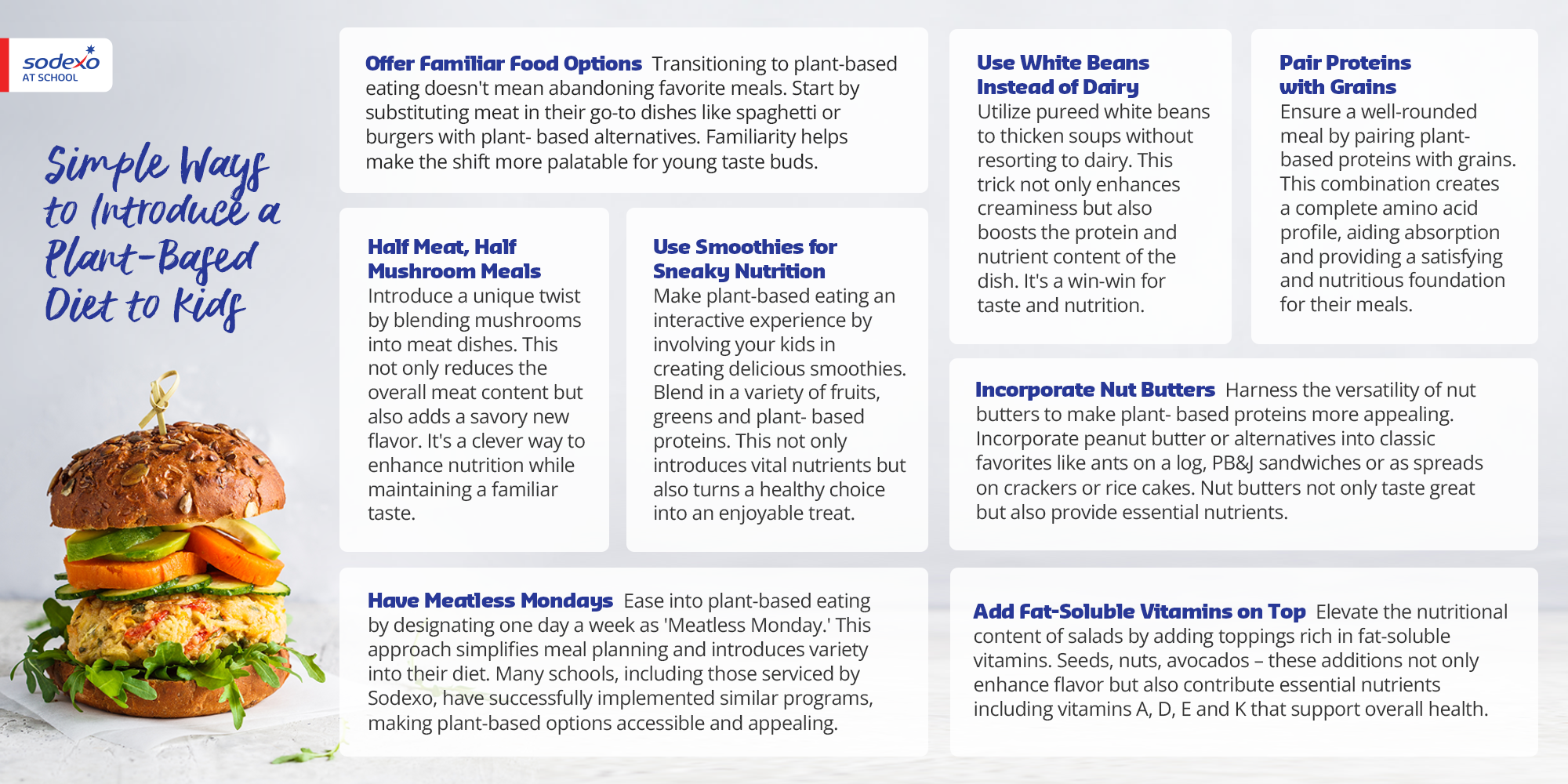By Meredith Hesselein, MS, RDN
As a K-12 dietitian and a mom of two young kids, I understand the struggle of convincing children to embrace plant-based foods. In a world where burgers and nuggets often steal the spotlight, steering kids towards a heart-healthy, plant-based dishes can be a daunting task. That’s why I want to shed some light on the importance of plant-centric plates and how to incorporate small changes to make the shift towards plant-based eating more kid-friendly.
In the realm of nutrition, misinformation has often clouded the path towards healthier living. For example, society tends to view fats and cholesterol as unhealthy – but it is important to understand that not all fats are created equal. For instance, the fats in egg yolks can be a vital part of a balanced diet. Furthermore, the conventional food pyramid was originally paid for by the American Beef Council and is outdated by about 20 years. However, the updated USDA MyPlate and Canada's food guide are better guides, emphasizing diverse protein sources beyond meats. Dietary guidelines for 2020-2024 have said a plant-based diet is actually healthier than an animal-based diet. A shift from a quarter of the plate being protein to a mere 2 ounces opens up a world of plant-based possibilities.
Contrary to common belief, student athletes can also thrive on a plant-based diet without risking malnourishment. The key is focusing on essential nutrients, especially iron, and embracing the diverse ways of incorporating plant-based options into daily meals. To kickstart a heart-healthy journey, consider moving the fruit and vegetables to the center of the plate. Whether it's a hearty salad or a plant-based protein source, incorporating smaller portions of animal protein throughout the day aids absorption and keeps growing bodies fueled.
Here are some tips parents and educators can use to make plant-powered eating a more accessible journey for children, setting them on the path to a lifetime of heart-healthy habits:

View the accessible infographic
Making the transition to a plant-based diet for heart health doesn’t need to be a sudden and drastic change – you can make small, sustainable shifts towards a heart-healthy lifestyle. By integrating these tips, parents, and educators can make plant-powered eating an exciting and accessible journey for children, setting them on the path to a lifetime of heart-healthy habits.
